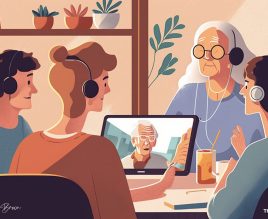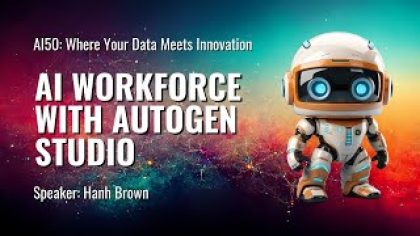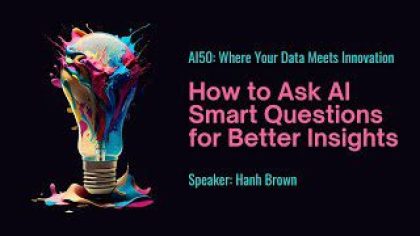Table of Contents
ToggleHealth and well-being are complex yet interconnected aspects that greatly depend on our dietary choices. Healthy eating is a cornerstone of wellness, influencing everything from our energy levels to our resilience against diseases. Modern problems often require modern solutions, and artificial intelligence (AI) has shown promising potential in promoting healthy eating.
AI can analyze a vast amount of nutritional data, learn from it, and make predictions or suggestions. Imagine an AI-driven recommendation system that could tailor a personalized diet plan based on your age, activity level, health status, and even genetic makeup. It sounds like a dream come true, doesn’t it?
However, like any other technology, AI is a double-edged sword. An over-dependence on AI might risk reducing complex nutritional science to an oversimplified algorithm. Our health is a nuanced, highly individualized aspect. Can we fully trust an algorithm with it? This article seeks to explore this intriguing intersection of AI and healthy eating, shedding light on the potential benefits and risks of our growing reliance on digital health technologies.
Understanding the Role of AI in Nutrition

The advent of artificial intelligence (AI) has revolutionized many areas of our lives, including our approach to nutrition. AI’s role in nutrition primarily revolves around providing personalized nutrition advice and promoting healthy eating habits. AI-powered applications can gather data about an individual’s age, lifestyle, physical health, and dietary preferences, among other things. Sophisticated algorithms then analyze this data to provide tailored nutrition recommendations.
AI-driven Nutrition Recommendations
The onset of AI has revolutionized countless industries, and nutrition is no exception. At the heart of this change are AI-driven nutrition recommendations, a blend of technological prowess and dietary science that has the potential to redefine our relationship with food.
AI in nutrition works by amassing large amounts of data—ranging from demographic information, health indicators, dietary preferences, to lifestyle habits. Sophisticated algorithms then sift through this information, learning patterns, and producing nutrition recommendations tailored to individual needs. For example, a diabetic patient might receive suggestions for low-glycemic foods, while a marathon runner might get recommendations for carb-rich meals.
Moreover, AI algorithms can evolve with new data. This means they have the potential to adapt to changes in your lifestyle, health status, or dietary habits, keeping the recommendations up-to-date and relevant. However, it’s crucial to note that these systems are only as good as the data they are trained on. Biased or incomplete data could result in flawed recommendations. Hence, while promising, the accuracy of AI-driven nutrition advice is dependent on the quality and comprehensiveness of the data fed into the system.
Personalized Diets Powered by AI
Digging deeper into the role of AI in nutrition, let’s turn our attention to personalized diets. The one-size-fits-all approach to nutrition has been repeatedly criticized for its inability to address individual needs and preferences. AI, with its ability to handle complex and varied data, offers an exciting solution to this problem.
AI-powered applications can generate personalized meal plans based on multiple factors such as an individual’s age, gender, weight, activity level, health conditions, and even genetic information. Some cutting-edge apps even consider factors like sleep patterns, stress levels, and food preferences. The result? A truly personalized diet plan that aligns with the user’s lifestyle and health objectives.
For instance, an AI-powered app might suggest a protein-rich diet for a gym-goer aiming to build muscle, or low-sodium meals for someone managing high blood pressure. These personalized diets aim to cater to specific health and lifestyle needs, making it easier for individuals to make better food choices.
Nevertheless, while AI can streamline the process of creating personalized diets, it’s important to remember that it doesn’t replace the need for professional health advice. AI can provide a great starting point, but the guidance of healthcare and nutrition professionals remains crucial for a well-rounded approach to health and wellness.
The Advantages of AI in Healthy Eating Choices

Artificial Intelligence (AI) brings significant advantages to the table when it comes to healthy eating. It provides accessible nutrition information and personalized guidance based on individual’s data. AI can adapt to changing health needs and preferences, making it a powerful tool for personalizing diets. It also encourages and sustains healthy eating habits by identifying patterns in food choices and providing real-time feedback and recommendations.
Accessible Nutrition Information and Guidance
In a world where diet fads come and go, finding reliable and individualized nutrition advice can be challenging. This is where AI steps in, democratizing access to nutrition information and guidance. AI-powered apps can provide nutrition advice at the tip of your fingers, anytime, anywhere. These applications can scan product barcodes, analyze food photos, or even listen to your voice descriptions of meals to provide real-time nutrition analysis. This instant feedback allows users to make informed food choices, even when on the go.
Also read: AI and Digital Literacy: Empowering Senior Citizens Through Tech
Moreover, these apps often include educational content about nutrition, further helping users understand their dietary choices. They can highlight the nutritional value of different foods, explain the importance of various nutrients, and debunk common diet myths, all of which contribute to a more informed user base. However, while AI can provide readily available nutrition advice, it’s important for users to critically evaluate this information. Always cross-reference AI advice with credible sources and consult a healthcare professional when in doubt.
Personalization and Adaptation to Individual Needs
One of the most significant advantages of AI in healthy eating is its ability to personalize advice and adapt to individual needs. Unlike traditional diet plans, AI can consider a broad spectrum of factors, including age, health conditions, activity levels, and even genetic predispositions, to generate personalized nutrition recommendations.
This high degree of personalization helps ensure that the advice is not only relevant but also sustainable for the individual. For instance, an AI-driven app might suggest a vegetarian with a busy schedule quick and easy plant-based meals packed with protein. This level of personalization not only caters to dietary preferences but also considers lifestyle constraints.
Moreover, AI’s ability to adapt to changes in user data ensures that dietary advice remains relevant over time. For example, if a user starts a new fitness regimen or gets diagnosed with a health condition, the AI system can adjust its recommendations accordingly.
Encouraging and Sustaining Healthy Eating Habits
Forming and maintaining healthy eating habits can be a daunting task. AI technology can provide the necessary support and motivation to make this journey a bit easier. AI can monitor dietary habits, identify patterns, and provide insights that users might overlook. For instance, an AI app could highlight a pattern of late-night snacking or a deficiency in a particular nutrient. These insights can prompt users to make necessary adjustments to their eating habits.
AI can also leverage various behavioral science techniques to encourage healthy eating. For instance, it can use nudges (subtle suggestions) to steer users towards healthier choices. It can also provide positive reinforcement through gamification, turning the pursuit of healthy eating into a rewarding and engaging experience. Additionally, AI can also help users set and track goals, providing a clear path towards healthier eating. Whether it’s reducing sugar intake, increasing vegetable consumption, or balancing macronutrients, AI can help users stay focused and motivated.
However, while AI can be a powerful tool in encouraging and sustaining healthy eating habits, it’s essential to remember that it is a tool, not a magic wand. Lasting change requires commitment and effort from the user’s end as well. AI can guide and motivate, but the ultimate responsibility for healthy eating lies with the individual.
The Risks and Challenges of Overdependence on AI-driven Nutrition Advice
While AI offers numerous benefits, overdependence can present risks and challenges. These include limitations in AI’s understanding of complex human nutrition and potential biases in its recommendations. Overreliance might also lead to the loss of personal responsibility and critical thinking in making food choices. These challenges underscore the importance of using AI as a tool and not as a complete solution to nutrition.
Limitations in AI’s Understanding of Human Nutrition
As promising as AI’s role in nutrition appears, it’s crucial to understand its limitations. One of the main challenges lies in the complexity of human nutrition itself. Our nutritional needs are influenced by an intricate interplay of genetic, physiological, psychological, and environmental factors. While AI can analyze patterns in data, it may not fully comprehend the subtleties of these relationships.
For instance, AI might not accurately account for the impact of stress, sleep, or emotional state on dietary needs and eating behaviors. Also, while AI can tailor diets based on genetic information, our understanding of nutrigenomics (the relationship between genes, nutrition, and health) is still in its infancy. Therefore, AI’s ability to interpret and apply this information is limited. Moreover, AI’s understanding of nutrition is only as good as the data it’s trained on. If the underlying data lacks depth and diversity, the AI could overlook important nuances, leading to overly simplified or inaccurate recommendations.
Potential Bias in AI-driven Recommendations

AI, despite its computational prowess, is susceptible to bias. If the data it learns from is biased or unrepresentative, the AI could generate skewed recommendations. For instance, if the data is predominantly from a certain demographic or geographic region, the AI might struggle to provide accurate recommendations for individuals outside that group. Similarly, if the data lacks information on certain health conditions or dietary preferences, the AI might be ill-equipped to cater to those needs.
Moreover, there’s a risk of commercial bias, especially with AI applications developed by food or supplement companies. These applications might subtly favor the company’s products, compromising the objectivity of the recommendations. Therefore, while AI-driven nutrition advice can be helpful, it’s important to approach it with a critical eye. Users should cross-check the information, consider the source of the advice, and consult healthcare professionals when necessary.
Loss of Personal Responsibility and Critical Thinking
While AI can simplify decision-making, an overdependence on it could lead to a loss of personal responsibility and critical thinking. Nutrition is a deeply personal aspect of our lives, and blindly following AI recommendations could detach us from our intuition and understanding of our bodies. Relying solely on AI for nutrition advice could also lead to a “black box” problem. Users might follow the advice without understanding the rationale behind it. This lack of understanding could make it harder for individuals to make informed dietary decisions when AI advice isn’t readily available.
Moreover, overdependence on AI could foster a false sense of security. Users might assume that the AI’s recommendations are foolproof, disregarding the importance of regular health check-ups and professional advice. This could potentially delay the diagnosis and management of health conditions. While AI can be a valuable ally in our pursuit of healthy eating, it’s not without its risks and challenges. It’s important to use AI as a tool, not a crutch, and balance it with personal responsibility, critical thinking, and professional advice. Only then can we truly harness the power of AI to nourish our bodies and souls.
Striking a Balance: Combining AI-driven Recommendations with Human Expertise

The key to harnessing the potential of AI in nutrition lies in striking a balance with human expertise. This involves consulting healthcare professionals who can provide nuanced advice and emotional support. It also means encouraging personal research and education about nutrition. Finally, a skeptical approach to AI recommendations is important, ensuring that AI’s role is well-understood and its limitations are recognized.
Consulting with Healthcare Professionals
While AI can provide valuable insights into our dietary habits and offer personalized recommendations, it’s essential to pair it with expert human advice. Healthcare professionals, like dietitians and physicians, bring years of education, experience, and nuanced understanding of the human body that AI currently can’t replicate. These professionals can interpret AI recommendations in the context of your overall health, lifestyle, and personal circumstances. They can also help you navigate complex health conditions, drug-nutrient interactions, and other intricate aspects of nutrition that AI might not fully grasp.
Moreover, healthcare professionals can provide emotional support and empathy, critical elements in any health journey. They can help you navigate challenges, celebrate successes, and adjust your plan as needed, adding a human touch to your wellness journey. Remember, AI is a tool, not a replacement for healthcare professionals. Its purpose is to augment, not replace, the care provided by these experts.
Encouraging Personal Research and Education
While AI can simplify the process of making dietary choices, it’s important to foster a culture of personal research and education. This involves understanding the basics of nutrition, staying informed about recent research, and critically evaluating the information you come across, including AI recommendations.
There’s a wealth of nutrition information available online, from scientific articles to educational videos and podcasts. While this can be overwhelming, it also provides an opportunity to learn and become an informed participant in your health journey. Personal research and education can help you understand why certain foods are recommended, the benefits of various nutrients, and the importance of balanced eating. This knowledge can empower you to make informed decisions, even when AI advice isn’t available.
Developing and Maintaining a Skeptical Approach to AI-driven Advice
As we increasingly rely on AI for nutrition advice, it’s crucial to develop and maintain a healthy skepticism. This doesn’t mean dismissing AI outright but rather questioning its recommendations, considering its limitations, and seeking additional sources of information when needed.
When using AI-powered apps, consider questions like: What data is the AI based on? What factors does it consider, and what does it overlook? Is the AI affiliated with a company that could influence its recommendations? This skeptical approach can help you navigate the world of AI nutrition advice, taking advantage of its benefits while avoiding potential pitfalls. Remember, the goal is not to reject AI, but to use it wisely and in conjunction with other resources.
Striking the right balance between AI and human expertise in nutrition involves consulting healthcare professionals, encouraging personal research and education, and maintaining a skeptical approach to AI advice. By combining the strengths of AI with human expertise and personal responsibility, we can create a robust framework for healthy eating and overall well-being.
FAQs
How does AI promote healthy eating?
AI promotes healthy eating by providing personalized nutrition advice. It collects data about your age, gender, weight, activity levels, health conditions, and dietary preferences. Sophisticated algorithms then analyze this data to provide nutrition recommendations tailored to your needs. Some AI applications can even track your food intake, provide real-time nutrition analysis, and offer educational content about nutrition.
Can AI replace dietitians or nutritionists?
While AI can provide valuable insights and personalized advice, it can’t replace dietitians or nutritionists. These professionals bring years of education and experience, along with a nuanced understanding of human health that AI can’t replicate. They can interpret AI recommendations in the context of your overall health and personal circumstances and provide emotional support and empathy. Therefore, it’s best to use AI as a tool to complement the care provided by these professionals.
What are the risks of overdependence on AI for nutrition advice?
Overdependence on AI for nutrition advice can lead to several risks. First, AI’s understanding of nutrition, while advanced, has its limitations. It might not fully grasp the complexities of human nutrition or accurately interpret certain data. Second, AI can be susceptible to bias if the underlying data it learns from is biased or unrepresentative. Lastly, overdependence on AI could lead to a loss of personal responsibility and critical thinking, detaching us from our intuition and understanding of our bodies.
How can we strike a balance between AI and human expertise in nutrition?
Striking a balance involves using AI as a tool, not a crutch. AI can provide valuable insights and personalized advice, but it should be complemented with expert human advice from healthcare professionals. Additionally, individuals should take the initiative to understand the basics of nutrition and stay informed about recent research. Developing a healthy skepticism towards AI advice is also essential. This involves questioning AI recommendations, considering its limitations, and seeking additional sources of information when needed.
References
- https://www.biomedcentral.com
- https://www.jmir.org/
- https://www.ncbi.nlm.nih.gov/


















1 Comment
[…] the science of how our meals impact us at the very basic, molecular level. This approach uncovers paths to healthier aging through diet. An example is AI that monitors what people eat, giving them instant advice tailored to their […]